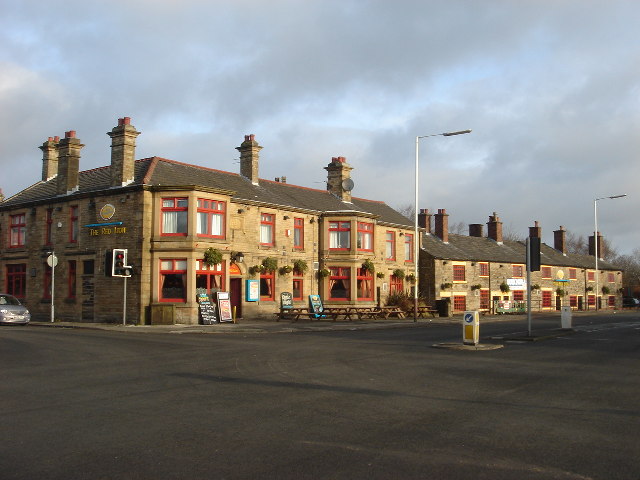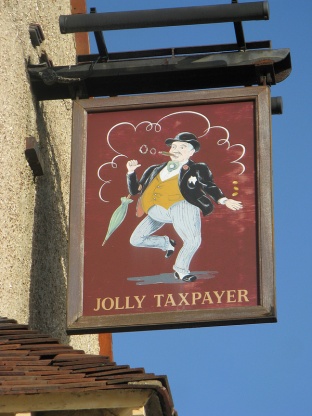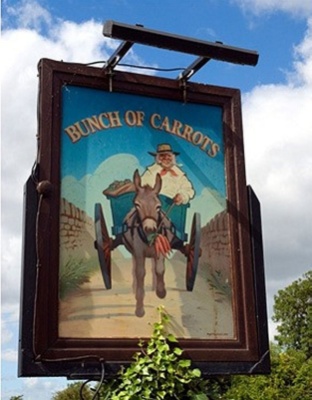A pint, a packet of crisps and a cheerful owner – even the notoriously ugly carpets of local English pubs hold a special place in the hearts of the English and these grand establishments are beginning to crop up over the channel in Europe. Besides the décor and frequent large ‘English Pub’ signs to clarify, one of the biggest giveaways is their names.

If you’ve visited the nation, chances are you caught a glimpse of a Royal Oak on your way from The White Horse back to your hotel by The Queen’s Head. The oldest pubs in England have been repeated over and over by a constant recycling of names. It begs the question, as so many pubs pride themselves on their own unique personalities, where’s the originality?
Check out a few numbers to gain a little perspective:
There are over 57,000 local English pubs
518 are named Red Lion (the most popular)
At least 426 pub names contain the word Queen (with 212 being Queen’s Head)
10% of all pubs have one of the top 20 most popular names
A quick glance at the Most Popular Names (or just a wander down the street) shows there are definitely some naming trends.
Animals – Fox & Hounds
Royals –The Queen
Arms (no not for drinking pints with, coats of arms of course) – Masons Arms
Objects (traditionally found hanging outside the door) – The Boot
Colour – The Green Man
So the overwhelming majority of names are a single noun. Where are the evocations? Where’s the creativity? It’s quite simple really. Historically, the reason for such vivid objectified names was such that locals in the area unable to read would be able to identify between public houses by the pictures on their signs (or even the objects hung outside). Practical naming at its best.
Then again, with a stroll through the Yorkshire Dales or a peak down a London alley you might come across some of the products of somewhat rogue pub namers. Why set up the 519th Red Lion when you can be the one and only Bunch of Carrots? Or if there are too many Queens in the town (heads and arms and all) the Jolly Taxpayer serves as a great alternative.
And then of course there’s those not-so-modest pubs looking for a bit of name buzz. The longest pub name, The Old Thirteenth Cheshire Astley Volunteer Rifleman Corps Inn, proudly sits in Stalybridge. That’s perhaps an improvement on the ‘pub with no name’ which, despite the absence of any name or signage altogether, is loved by loyal locals in Hampshire.
As English pubs are exported, their names are exported too and indeed playing on the English tradition is rife. See if you can spot The Frog and Rosbif or The Bowler on your next trip to Paris and check out whether the notorious pub carpet has been exported too.
Odd or not, the collective realm of English pub names tremendously illustrates centuries of events and traditions which make up England’s social history, and what may appear to simply be a Flying Fox in fact ensures that the winning racehorse of the first Duke of Westminster is forever celebrated with a pint.


